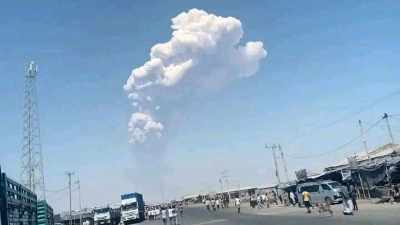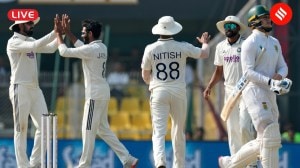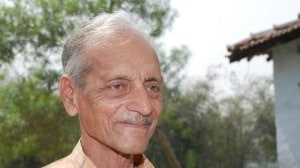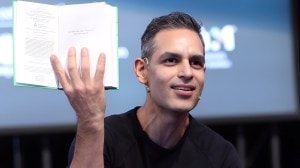Bilkis Bano Case Updates: Remission quashed, what now for the convicts?
Bilkis Bano Case: The Supreme Court has ordered the convicts in the 2002 Bilkis Bano gangrape case back to prison. On what grounds? What legal option do these 11 men, who walked free in August 2022, have now?
 The Supreme Court on Monday struck down the remission granted by the Gujarat government to 11 convicts, who are out of jail, in the Bilkis Bano case. (Express file photo by Anil Sharma)
The Supreme Court on Monday struck down the remission granted by the Gujarat government to 11 convicts, who are out of jail, in the Bilkis Bano case. (Express file photo by Anil Sharma) Bilkis Bano Case Supreme Court Judgement: The Supreme Court on Monday struck down the remission granted by the Gujarat government to 11 convicts who were serving life imprisonment for the gangrape of Bilkis Bano during the communal riots in Gujarat in 2002.
The men, who had been granted early release on August 15, 2022 after serving 14 years in jail, were directed by the top court to surrender within two weeks.
On what grounds did the Supreme Court strike down the remission given by the Gujarat government in 2022?
The Bench of Justice B V Nagarathna and Justice Ujjal Bhuyan said that the Gujarat government did not have the authority or jurisdiction to consider the remission applications of the convicts, to reduce their sentence.
This was because the trial in the case was transferred from Gujarat — where the crime was committed — to Mumbai, Maharashtra, in 2004 by the Supreme Court after concerns and apprehensions were raised of evidence tampering, and the absence of a conducive situation for a fair trial in Gujarat.
Following the trial, a special CBI court in Mumbai convicted and sentenced the 11 men in 2008.
 The convicts were felicitated with sweets on their release in August 2022. (File Photo)
The convicts were felicitated with sweets on their release in August 2022. (File Photo)
The Supreme Court said that as per the provisions of Section 432 of the Code of Criminal Procedure Code (CrPC), 1973, an application for remission can only be before the government within whose territorial jurisdiction the applicant was convicted, in this case, Maharashtra, and not where the offence took place, in this case, Gujarat.
Under Section 432 of the CrPC, state governments do have the power to suspend or remit a sentence. But the court noted that Section 7(b) of the law clearly states that the appropriate government is the one in whose jurisdiction the offender is sentenced.
The court said that the state of Gujarat had “usurped the powers of the state of Maharashtra which only could have considered the applications seeking remission”.
The court also noted that the convicts were considered for an early release on the basis of a policy of the state of Gujarat dating back to 1992, which could not have been applied to them.
That policy allowed for an early release of prisoners who have completed 14 years of imprisonment — but it was subsequently cancelled, and substituted by another policy in 2014 which barred the grant of remission to convicts of heinous crimes.
The court also said that the convicts had not fulfilled the condition of paying a fine ordered by the trial court to be considered for remission.
How did the question of remission reach the Supreme Court?
In 2022, one of the convicts in the Bilkis Bano gangrape case, Radheshyam Shah, approached the Supreme Court seeking directions to the Gujarat government for premature release citing the 1992 policy for convicts who had completed at least 14 years in jail.
In an order dated May 13, 2022, a Supreme Court Bench of Justice Ajay Rastogi and Justice Vikram Nath asked the Gujarat government to consider Shah’s application for premature release “within a period of two months”, as per the state’s 1992 remission policy.
Based on this, a government panel recommended the convicts’ release, and they walked out of a Gujarat jail on August 15, 2022. They were felicitated on their release by local leaders.
Bilkis Bano then filed a petition against the convicts’ release; other petitioners too approached the court through public interest petitions (PILs).
On Monday, the top court said that the order passed by it on May 13, 2022, was nullified as the petitioner Shah had suppressed facts and misled the court, including the fact that the 1992 policy under which he was seeking relief had been cancelled by the Gujarat government.
The court said that Shah also suppressed the fact that he had already approached the Maharashtra government in 2019 after the Gujarat High Court rejected his prayer stating that the plea should be filed before the Maharashtra state where the trial took place.
The court said that the government failed to file a review petition seeking a correction of the order about the cancellation of the 1992 policy and about the fact that it was the Maharashtra government which was the appropriate authority.
So what happens now? Can the convicts apply for remission again? If so, before whom, and under what rules?
The criminal justice system has provisions like remission or reduction of sentence, taking into account the fact that a person can reform, and can be set free as a better citizen.
In its judgment on Monday, the Supreme Court said that there are competing interests — that of the rights of the victim or her family to justice, and that of a convict’s claim to a second chance. The Bench said that in prior judgments, the top court has expressed scepticism over the latter, particularly if the offence committed is a heinous one. The court also said that this is not an “indefeasible” (not capable of being annulled or voided) right of a convict.
The convicts can approach the Maharashtra government for remission in the future. Whether remission is granted will, however, depend on various aspects, including the remission policy of the state. The convicts had argued before the Supreme Court that the policy applicable to them would be the one in vogue at the time of their conviction, which was in 2008.
Radheshyam Shah had approached the state of Maharashtra on August 1, 2019 after the Gujarat High Court said that the state was the appropriate government for his case.
At that time, the Maharashtra home department had sought the opinion of the presiding CBI judge as per the provisions of Section 436 CrPc. The judge had given a negative report, and had objected to the premature release on January 3, 2020.
The judge had cited the remission policy of Maharashtra, studying guidelines issued in 1978, 1992, and 2008. The court said that the Government Resolution (GR) dated April 11, 2008 would apply to the convicts, as it had superseded the other guidelines.
This GR states that a minimum imprisonment of 28 years would have to be undergone for a convict found guilty for offences related to crimes against women and minors where the crime is committed with exceptional violence, before they can apply for remission.
In this case, the convicts have completed more than 14 years in prison.
****
Bilkis Bano case file: Key milestones, 2002-2024
THE CRIME, 2002
Feb 28: Bilkis and family fled their home in Randhikpur, Dahod district, after riots began in the aftermath of the Godhra train burning the previous day.
Mar 3: Bilkis, then 5 months pregnant, was raped, 14 of her family members killed by a mob.
Mar 4: Bilkis was taken to Limkheda police station. FIR did not mention her rape, did not name accused even though she identified 12 of them.
Mar 5: Bilkis was taken to Godhra Relief Camp; her statement recorded by an executive magistrate.
POLICE RESPONSE
Nov 6, 2002: In Summary Report ‘A’, police requested closure, but the court asked for continuation of the investigation.
Feb 2003: Limkheda Police again requested closure of the case; this time the court accepted.
SC CALLS IN CBI
Apr 2003: Bilkis approached Supreme Court asking that Magistrate’s order accepting the ‘A’ summary be set aside.
Dec 6, 2003: SC transferred the investigation to the CBI.
Feb 1-2, 2004: Bodies exhumed, no skulls found. Bombay HC later observed, “It appears that at some point heads were cut off.”
Apr 19, 2004: CBI filed chargesheet before CJM Ahmedabad against 20 accused, including 6 police officers and 2 doctors who performed autopsies on Mar 5, 2002.
VERDICT & APPEAL
Aug 2004: SC moved the trial from Gujarat to Mumbai after Bilkis faced death threats; directed the central government to appoint a special public prosecutor.
Jan 21, 2008: Special Judge in Mumbai convicted 11 and sentenced them to life imprisonment for murder, rape.
2009-2011: Both the convicts and the CBI went in appeal; the CBI sought enhancement of the sentence for three convicts to death, and appealed against the acquittals of other accused.
May 2017: Bombay HC upheld conviction of the 11 by trial court, refused to enhance punishment from life imprisonment; set aside trial court’s acquittal of 5 police officers and 2 doctors.
CONVICTS RELEASED
Aug 15, 2022: 11 convicts, including Radheshyam Shah, released from Godhra sub-jail on remission by Gujarat government.
Sept 2022: Bilkis Bano approaches SC challenging the premature release of the 11 convicts.
Jan 8, 2024: SC quashes Gujarat government’s decision to grant remission to 11 convicts.
IN SUPREME COURT
July 2017: SC dismissed appeals by 2 doctors and 4 policemen.
Apr 23, 2019: SC ordered payment of Rs 50 lakh as compensation and directed the state government to provide Bilkis with employment and accommodation.
May 2022: Convict Radheshyam Shah appealed in SC against a July 17, 2019 order of the Gujarat HC, which had ruled that Maharashtra is the “appropriate government” to decide on his plea for remission after he had completed 15 years and 4 months of his life term awarded in 2008.
May 13, 2022: An SC Bench of Justices Ajay Rastogi and Vikram Nath asked the Gujarat government to consider Shah’s application for premature release “within a period of two months”, as per the policy that was applicable in the state on the date on which he was convicted.




- 01
- 02
- 03
- 04
- 05


































